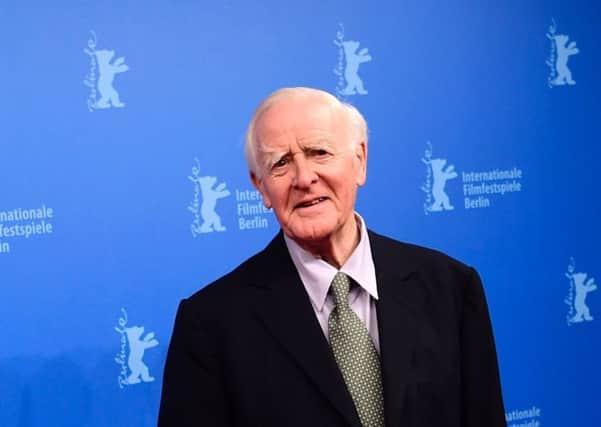Book review: A Legacy Of Spies, by John Le Carré


It begins in the present, with Peter Guillam, George Smiley’s acolyte, in retirement in France, when he receives a summons to the “shockingly ostentatious” new headquarters of the Service on the south bank of the Thames: Peter much prefers the “labyrinth of corridors and dead ends that is the physical embodiment of the world you’ve chosen to live in” that was the Circus. Spies, of course, are never wholly retired.
The novel starts with a kind of hairpin syntax that will typify the whole: “What follows is a true account,” writes Guillam with admirable candour, continuing “as best I am able to provide it”. At Embankment he is met by Laura from “History” and Bunny, the Legal Counsel, to answer a few questions regarding “Operation Windfall”. Bunny is a figure from a Wodehouse comedy that might bend sinister in the twist of a word in italics. Laura is both more reserved and angrier. Their interest in Peter has been piqued by a problematic case. As this is only on page 38, I think I can quote it without spoilers: “We are therefore faced with the ludicrous Shakespearean premise whereby the ghosts of two victims of a fiendish Circus plot rise up to accuse us in the form of their offspring.” Windfall, suffice to say, involved activities in East Germany before the Wall went up, and afterwards.
Advertisement
Hide AdJohn Le Carré has a singular style of writing where exposition is followed swiftly by the revelation it might all be mendacious. As he describes the opening salvos between them, Peter says: “Catherine is my tenant. She’s the daughter and granddaughter of the previous tenants. I choose to live on the premises, and insofar as it’s your business, I’ve never slept with her and I don’t intend to. Does that cover it?... My first lie, ably told.” Which of those statements, the reader wonders, is the lie? Later, for example, Peter will say “that’s what I’m planning” to an old colleague only for the next paragraph to begin: “It was not true that I intended to catch a crowded midday ferry.” It forces the reader to parse everything carefully: as you read it, you are taught to distrust it. You are, in a way, tailing the narrator.
The novel manages to be, in effect, a prequel and a sequel at the same time. Peter has to confront the past, and negotiate the present, and its perils and pitfalls, at the same time. There are numerous documents and transcripts, which are intended either to shed light or act as a cover. There is a constant sense that even if an operation is successful, the first thought should be: was that too easy? And if so, why? Le Carré introduces certain contemporary anxieties – a peacetime generation committed to “transparency” and unaware of sacrifice, the hypocrisies of “being held to account” and, in a final cadenza of shuddering power, a defence of the idea of Europe.
There is a lapidary, aphoristic quality to the prose – “When the truth catches up with you, don’t be a hero, run” – and a vein of humour despite the serious nature of the narrative. I particularly liked “I thumb a grimy copy of Private Eye and wonder which of us has lost our sense of humour”. The epigraph comes from Heidegger – “Every man is born as many men and dies as a single one” – which would adequately describe the nature of the spy (think of all the aliases), but is about death more generally; and an air of elegy.
Le Carré has shown that any genre has the capacity to reveal truths about the human condition. Given espionage novels often featured the improbable and the theatrically villainous, his oeuvre has, in a quiet and clever way, actually been about virtue. More importantly, it has analysed the shrieks that resound when what is right, what is kind, what is necessary, what is dutiful, what is brave, what is honest and what is good grate against each other in secret rooms and silent souls.
*A Legacy Of Spies, by John Le Carré, Viking Penguin, £20